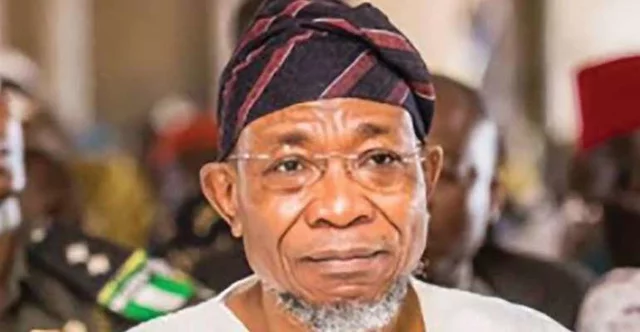
Former Interior Minister and current National Secretary of the African Democratic Congress (ADC), Rauf Aregbesola, recently stirred controversy by suggesting that Nigeria’s political parties should be allowed to nominate officials to the Independent National Electoral Commission (INEC).
Speaking at a panel session on electoral innovation hosted by the Athena Centre for Policy and Leadership in Abuja, Aregbesola argued that the current method of appointing the INEC Chairperson, National Commissioners, and Resident Electoral Commissioners (RECs) is “deeply flawed.”
According to him, parties with at least five members in the National Assembly should be empowered to nominate individuals to lead INEC, claiming that such a model would “solve all the issues” of bias and manipulation in Nigeria’s electoral system. In his words: “If the parties now betray themselves to allow one of them to run away with it, fine.”
SPIRITUAL SOLUTION THAT WORKS
Are you in need of spiritual guidance about your life?
Do you need a complete spiritual check-up to balance your spiritual life, your Dreams and your spiritual suspicious?
Look no further!
Consult With Trusted A highly experienced spiritual guide.
DR ADAMS ADAM
Will Guide you to achieve Success, Wealth, Healing Possessions and protection, bręakthrough. Spiritual power, healing & cleansing, Peaceful relationship. Get our natural Male Enhancement to Improved your libido, sexual performance and Enhanced fertility. Our spiritual check-up program will reveal the hidden secrets about your Life and solution. For spiritual consultation and counseling.
ON MATTERS OF THE MIND, BODY AND SPIRIT.
Call or WatsApp + 2 3 4 7 0 6 2 1 5 6 8 3 4
With god All things
LOCATED AT “ABUJA, LAGOS, OSUN
While Aregbesola’s critique of the current system has merit — particularly his point about the risk of executive overreach when the President appoints the electoral umpire — his proposed remedy is not only misguided but fundamentally threatens the very independence of Nigeria’s electoral process.
There is no credible democracy in the world where political parties directly nominate election officials. The logic is simple: an election management body must be insulated from partisan influence to maintain neutrality, fairness, and credibility. Allowing political parties — the very contestants in elections — to nominate INEC officials would be akin to letting football teams select the referees who officiate their matches. It violates the principle of impartiality that underpins democratic elections.
Moreover, Aregbesola’s suggestion directly contradicts the spirit and letter of the 1999 Constitution of the Federal Republic of Nigeria, which explicitly prohibits electoral officials from being members of political parties. The framers of the Constitution, in their wisdom, understood that even the perception of political bias in INEC could fatally undermine public confidence in elections.
It is puzzling that a man of Aregbesola’s political experience — one who fought a long and hard legal battle to reclaim his mandate as governor of Osun State in 2010 — would now advocate a system that could easily have denied him that victory. Would Aregbesola have trusted an INEC dominated by officials nominated by the then-ruling Peoples Democratic Party (PDP)? Certainly not.
If anything, Aregbesola’s statement reflects the frustration many Nigerians feel about INEC’s recent credibility challenges, particularly after the 2023 general elections. However, the answer lies not in politicizing the Commission further but in strengthening its institutional independence.
What Nigeria needs is not partisan control of INEC, but transparent and accountable appointment processes. Civil society organisations, professional bodies, and judicial councils should play greater roles in screening and recommending nominees, while the National Assembly’s confirmation hearings must be made more open and rigorous. The President should no longer have unilateral power to appoint the INEC Chair and Commissioners without meaningful checks.
Furthermore, INEC’s funding and administrative autonomy must be constitutionally guaranteed and practically enforced. An electoral body that depends on political goodwill to function can never be fully independent.
Aregbesola’s call, though perhaps well-intentioned, would reverse decades of progress in depoliticising Nigeria’s electoral system. Nigeria must not trade independence for convenience. The credibility of elections rests on the impartiality of those who conduct them — and that impartiality must never be up for negotiation.
The path forward is clear: reform INEC, yes, but do so through constitutional safeguards, institutional transparency, and public accountability — not through political capture disguised as innovation.
Nigeria’s democracy cannot thrive if the lines between player and referee are blurred. Aregbesola’s proposal may ignite debate, but it should be firmly rejected as both impractical and dangerous to the survival of electoral integrity. Please Help Us Follow Trending News Channel on WhatsApp